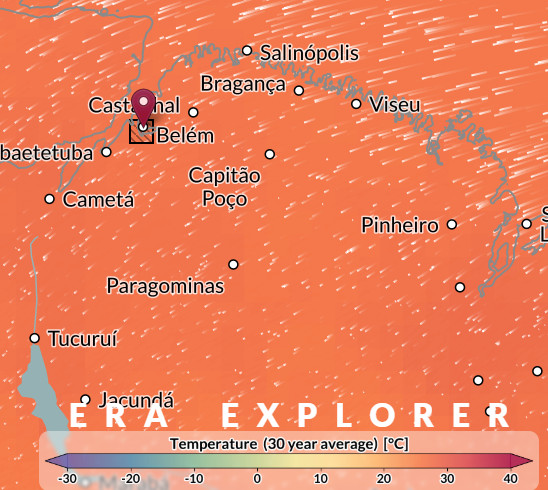We know Why climate education is important, but What should we teach and How should we be teaching it?
The need for better climate education in schools across the UK is undeniable – from calls from young people, teachers and employers and evidence from climate literacy surveys.
As the Curriculum is being reviewed/ refreshed in England, Scotland and N Ireland and the new curriculum is being embedded in Wales, there is an ideal opportunity for curriculum designers to assess the opportunities for climate education within their curriculum and, critically, to ensure appropriate sequencing of knowledge, understanding, skills and values across subjects and levels.
The DfE in England’s Curriculum and Assessment review interim report specifically states that: “Rapid social, environmental and technological change necessitates that the curriculum keep pace; including a renewed focus on digital and media literacy, and a greater focus on sustainability and climate science.”
The Royal Meteorological Society believes that every student should leave school with the basic climate literacy that would enable them to engage with the messages put forward by the media or politicians or to make informed decisions about their own opportunities and responsibilities when it comes to climate change mitigation and adaptation, and also to equip them with the understanding and skills required to thrive in the green careers of the future.
For this to be possible, it is vital that they are able to critically apply their knowledge, understanding and skills to the contexts they encounter in their current and future lives.
In March 2025, we invited representatives from a broad range of subject and professional organisations to come together in a workshop kindly hosted by the University of Reading.
The aim of the workshop was to begin defining a Curriculum for Climate Literacy which, as part of a much wider curriculum, would equip students with the climate literacy needed for their lives as local and global citizens, and with the skills for careers shaped by a changing climate. By bringing together those with subject and subject-teaching expertise we hoped to develop a well sequenced, coherent, holistic and progressive curriculum.
Critically, what should all students know when they leave school, and what should some students, through their choice of subjects, know to equip them for specific further training/ study and careers?
Since the workshop, we have worked with many of these organisations to establish the Curriculum for Climate Literacy, which we hope those now developing national curricula, exam specifications and school level curricula will find useful.
The Core Principles of the Curriculum for Climate Literacy:
- All students should leave school with the necessary climate literacy required to thrive as citizens of a world where the climate is changing, irrespective of their subject choices.
- Climate literacy includes an understanding of climate science as well as the complex social and economic factors which relate to an understanding of the interaction between people and the climate system.
- Climate change is a multi-disciplinary problem that requires a multi-disciplinary approach to both learning and solutions. Systems thinking is key, and the climate system (as well as the Earth’s natural, social and political systems) span school subject disciplines.
- We have aimed to create a well sequenced, progressive curriculum where disciplinary or ‘substantive’ knowledge and understanding is developed progressively and is not repetitive or tokenistic.
- We have supplied very detailed information – so that this can be implemented in any school curriculum, whatever its national framework. The detail is necessary to ensure equitable provision of high-quality climate education which is not dependent on teacher expertise or awareness.
- We acknowledge the risk of curriculum overload and have endeavoured to suggest an appropriate amount of content in each subject. However, in some subjects, there does need to be a significant proportion of the curriculum dedicated to climate literacy.
- The curriculum should have the flexibility to keep up to date with climate science, climate solutions (adaptation and mitigation) and the current state of the world, not least because this keeps it relevant to the skills for green careers options open to school leavers. A mechanism for regular review and update should be a part of the curriculum approach.
- The curriculum should be flexible enough for teachers to be able to adapt it to local and current contexts.
- Critical thinking should be embedded throughout the curriculum. It has relevance beyond climate literacy but is particularly relevant here.
- Teacher support is critical to delivery of this curriculum. We recognise that significant teacher training and CPD will be required to allow confident delivery of high-quality climate education, as well as classroom resource provision.
- A common language is critical for a curriculum for climate e.g. including consistent definitions at curriculum and setting level and across subjects. For example, when referring to climate actions and solutions in this document, we include mitigation, adaptation and, where appropriate, loss and damage payments, on a personal to global scale.
- This is a Curriculum for Climate Literacy, not specifically for biodiversity or wider sustainability or environmental issues, whilst recognising that these topics are not entirely separable from climate literacy, because that is where our (RMetS) expertise lies.
- This is a curriculum of hope, focussed as much as possible on actions and solutions as well as students’ futures, such as green careers, whilst still developing sound understanding of climate change and its far-reaching implications.
- Subjects with a strong connection to a related career in climate change have these links explicitly developed within them, helping to meet Gatsby Benchmark 4: ‘Linking curriculum learning to careers.’
- We have highlighted sequencing links to other subjects but assumed progression within the same subject (e.g. across the sciences).
- Climate literacy supports global and local citizenship.
- Climate literacy supports stewardship of the Earth and its resources.
- This curriculum is focussed on knowledge and understanding. Skills & values constitute an equally vital part of a complete and coherent curriculum, as do the pedagogical/ how to teach aspects.
Access the full document for the detailed recommendations according to subject and level.
In compiling this Curriculum for Climate Literacy we have drawn on the work done by many organisations including, but not limited to, UNESCO’s Greening Education Partnership, TIDE, CAPE and SOS-UK.
Other core RMetS activities including quality controlling teaching and assessment resources, running an annual survey to assess the climate literacy of school leavers across the UK, and delivering teacher training.


